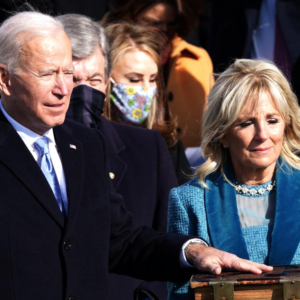Tesla Motors, the American electric car company, sells their cars directly to consumers rather than through independent dealerships. In New Jersey, however, laws exist that require automobiles to be sold through franchised dealerships. It is against the law for manufacturers like Ford, General Motors, or Tesla to sell directly to consumers. Car manufacturers instead sell their final products to local car dealerships that then sell them to consumers. Tesla’s situation in New Jersey, however, has been rather complex. The aforementioned law is ambiguous regarding who can become a dealer, and Tesla has used this to defend its direct sales to consumers. The New Jersey Coalition of Automotive Retailers (“NJCARS”) has been consistently lobbying the Christie administration to clarify the law to show that Tesla’s direct sales are illegal. On March 11th, the New Jersey Motor Vehicle Commission (“NJMVC”) decided that a dealer must be a franchisee, thus ending the consumers’ right to buy Tesla vehicles in the state.
Initially, this model of auto-intermediation made logical sense. Developed nearly a century ago as a way to sell Packards, manufacturers used local franchises to expand their reach to more consumers without having to make massive investments in retail overhead, as the franchisee assumes this financial burden. The franchise model was also supposed to foster price competition, as rivalry between local dealers would theoretically drive down the price of automobiles and make them affordable to the masses. Unfortunately, automakers had the ability to take franchises from established dealers and give them to other ones, which prompted states to pass legislation to protect the dealerships from corporate takeover. While the dealership model has been around for a long time and remains to be the status quo of automobile sales, New Jersey’s prohibition of Tesla’s direct sales is bad politics and even worse policy.
Elon Musk, founder and Chief Executive Officer of Tesla Motors, called it “an affront to the very concept of the free market.” While it may sound a bit hyperbolic, Musk is exactly right – this move by the state of New Jersey, in its essence, is the antithesis of free-market. What happened in the Garden State is nothing more than economic protectionism on the part of the auto dealers to delay the inevitable decline of these superfluous middlemen. In an age where consumers can use the internet to purchase anything from designer clothes to laptops, often directly from the manufacturer, the mandatory dealership laws are both archaic and unnecessary.
One prominent veteran of the New Jersey automobile market offered a very revealing criticism of Tesla Motors when he said that Elon Musk “wants all the profits for himself.” Is the pursuit of profits not the crux of American capitalism? When a company such as Starbucks, for example, opens a new coffee shop in town, they do so not out of an inherent benevolence for local baristas; they do it because its profitable. The same automotive dealer seemingly admitted his own needlessness when he went on to say that Tesla’s direct sales approach is “cutting out a lot of people” and that there is “no way that’s gonna [sic] fly.” Given the current system, where the dealer’s profit margin ranges from 10 to 20 percent of the retail price, the loss of the middleman should theoretically drive the price down, not up. What better way to delay this Schumpeterian creative destruction than to erect legal barriers to subvert the natural forces of the automobile market?
From an innovation standpoint, these laws are directly obstructing the development of the American market for electric automobiles. By just about any measure, Tesla poses the greatest threat to the existence of gasoline-fueled cars and the dealerships that sell them. Some auto dealerships already sell electric automobiles, but there is a clear conflict of interest that incentivizes dealers to peddle gasoline-powered cars versus their electric counterparts: servicing fees. As many can surely attest to, getting a car serviced at the dealership isn’t cheap, and servicing has evolved into a major profit center for dealerships. Tesla’s cars, like many electric vehicles, require very little service, if any at all. The Tesla Model S, for example, has no engine, no oil, no spark plugs and no fuel filters. Owners of these vehicles don’t even need to have brake pads replaced. In addition, these cars are capable of updating their software just as you’d update to a new operating system on your mobile phone. This was the car that was awarded a score of ninety nine out of 100, the highest score ever awarded to a car, by Consumer Reports, who rates cars based on quality, reliability, and consumer satisfaction. To put this in perspective, BMW’s premium sedans only received a score of sixty six; Ford received a fifty.
One of Tesla’s core principles is the belief that customers should not have to pay the company when the product breaks. By prohibiting the sale of these products, New Jersey’s consumers are left with an inefficient and costly system despite a highly efficient electric alternative. Where would computer technology currently be if the typewriter manufacturers’ lobby prevented Steve Jobs from selling Apple computers unless he sold them through typewriter dealerships? New Jersey’s laws are protecting a system in which rent seeking is rampant and innovation is censured for fear of diminishing profits.
New Jersey’s move to block Tesla’s sales makes almost as little political sense as it makes policy sense. At this year’s Conservative Political Action Conference (CPAC), one week before the Christie administration and NJMVC moved unilaterally to block Tesla Motors, Governor Christie said, “We need to talk about the fact that we are for a free-market society that allows your effort and ingenuity to determine your success, not the cold, hard hand of the government.” In only a matter of days, it was the cold, hard hand of government that determined Tesla’s success, despite their effort and ingenuity. Rather than continuing to delay the NJMVC’s proposal to force Tesla to comply with the dealership regulations until it could be decided in the state legislature, Governor Christie’s administration expedited the process. Even to the most apathetic followers of politics, the level of hypocrisy and apparent cronyism is staggeringly blatant considering the $60,000 in dealer donations to Christie. For a governor with presidential aspirations who is riled in ongoing scandals, many of which involve accusations of abuse of power, it makes very little political sense to move unilaterally against something that has overwhelming support and then use a legal technicality as justification; not to mention the fact that it contradicts his bedrock ideological principles. Rather than capitalize on an opportunity for political redemption, the Christie administration put the ball on the tee for an opponent (Republican or Democrat) to capitalize on this enormous opening for political arbitrage.








